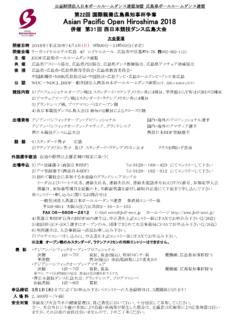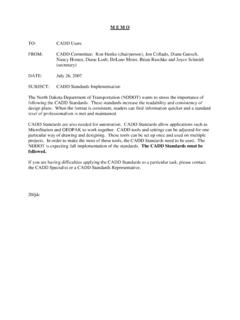Transcription of jpr report
1 Jpr / report Institute for Jewish Policy Research Synagogue membership in the United Kingdom in 2016. Donatella Casale Mashiah and Jonathan Boyd July 2017 . The Institute for Jewish Policy Research (JPR) is a London-based research organisation, consultancy and think-tank. It aims to advance the prospects of Jewish communities in the United Kingdom and across Europe by conducting research and informing policy development in dialogue with those best placed to positively influence Jewish life. The Board of Deputies of British Jews is the voice of British Jewry the only organisation based on cross-communal, democratic, grassroots representation. It is the first port of call for Government, media and others seeking to understand the Jewish community's interests and concerns. Authors Dr Donatella Casale Mashiah is a Research Fellow at JPR.
2 A former visiting scholar at the Quality of Government Institute in Gothenburg and at the University of Potsdam, she is a member of international research partnerships, including the European Cooperation in Science and Technology's action on local public sector reforms and the Observatory on Local Autonomy. She holds a doctorate in business administration and management from the University of Pisa where she specialised in public policy and public and non- profit sectors management. Her research is featured in academic publications and expert listings, including the Policy Studies Yearbook issued by the American Political Science Association. Dr Jonathan Boyd is Executive Director of JPR. A specialist in the study of contemporary Jewry, he is a former Jerusalem Fellow at the Mandel Institute in Israel, and has held professional positions in research and policy at the JDC International Centre for Community Development, the Jewish Agency for Israel, the United Jewish Israel Appeal and the Holocaust Educational Trust.
3 He holds a doctorate in education from the University of Nottingham, and an MA and BA in modern Jewish history from University College London. He is the author of numerous reports on British and European Jewish life, a Board member of the Association for the Social Scientific Study of Jewry, and a columnist for the Jewish Chronicle. This study was produced by the Institute for Jewish Policy Research on behalf of the Board of Deputies of British Jews. Cover photograph courtesy of Bevis Marks Synagogue, Blake Ezra Photography jpr report July 2017 Synagogue membership in the United Kingdom in 2016 1. Contents Executive summary 2. Introduction 3. 1 UK synagogue membership: key statistics 6. 2 Denominational distinctions 11. 3 Geographical trends 17. Methodology 22. Appendix 1. Synagogue membership questionnaire 25.
4 Appendix 2. Synagogue membership survey guide 27. Appendix 3. List of all synagogues included in Group 1. by membership size 29. Appendix 4. List of all synagogues included in Group 2. in alphabetical order 39. Bibliography 43. 2 jpr report July 2017 Synagogue membership in the United Kingdom in 2016. Executive summary In 2016, 79,597 Jewish households across the United Kingdom held synagogue membership. There were 454 synagogues in operation across the United Kingdom in 2016, the highest number in recorded history. Household synagogue membership figures have declined by 20% since 1990, the equivalent of 20,166 households, and by 4% since 2010, the equivalent of 3,366 households. An estimated of all households across the UK with at least one Jew living within them held synagogue membership in 2016, although the proportions in Scotland, Wales and Northern Ireland were significantly lower.
5 The vast majority (96%) of synagogue members in the UK live in England, and Jews living in England are much more likely to belong to a synagogue than those living in other parts of the UK. The largest denominational group in 2016 was Central Orthodox' (comprising synagogues affiliated to the United Synagogue or the Federation of Synagogues, as well as independent modern Orthodox synagogues around the country), which held 53% of all household synagogue memberships. The remaining synagogue memberships are held by other denominations: Reform (19%); Strictly Orthodox (13%); Liberal (8%); Masorti (3%); and Sephardi (3%). The most significant changes in synagogue membership since 1990 can be seen in Central Orthodoxy, which has experienced a 37% decline over the period, and in Strict Orthodoxy, which has experienced a 139% increase.
6 These trends have continued since the last synagogue membership report was published in 2010. The Central Orthodox share has declined by 8% over the past six years, whilst the Strictly Orthodox share has grown by 18%. Three quarters of all synagogues in the UK are situated in Greater London (64%) and the adjacent areas of South Hertfordshire and South-West Essex (10%). 11% of all synagogues in the UK are in Greater Manchester; 15% are located across other parts of the country. Half of all synagogue members in the UK belong to synagogues located in just five areas: Barnet, Westminster, Hertsmere, Redbridge and Stamford Hill. jpr report July 2017 Synagogue membership in the United Kingdom in 2016 3. Introduction This report is the latest in a series of synagogue membership studies conducted in the United Kingdom since the 1960s.
7 Throughout much of this history, this work was conducted by the Board of Deputies of British Jews, whose researchers developed the methods employed. The last report in this series, published in 2010, was jointly undertaken by the Board of Deputies and the Institute for Jewish Policy Research (JPR). This new report is the first to be carried out exclusively by JPR following an agreement established between the two organisations in 2015. That agreement provides Board of Deputies funding for JPR to collect, analyse, and disseminate a number of key community statistics, including births and deaths, Jewish school enrolment and synagogue membership. Synagogue membership statistics are amongst the most important data that exist about Jews in the United Kingdom. Unlike in some countries where individuals belong to an umbrella body representing the Jewish community as a whole ( the Einheitsgemeinde model in Germany), or in others where synagogues are among several similarly important types of institutions to which individuals can belong (for example, in the United States), in the UK synagogues have long been the main and most common means by which Jews affiliate to the Jewish community.
8 That is not to suggest that Jews cannot express their identity by affiliation to other types of Jewish organisations indeed, many do but synagogue membership figures remain by far and away the best measure of Jewish communal affiliation that we have. They provide the only consistent indicator of patterns of Jewish affiliation and belonging over time, and are thus of particular interest to community leaders and planners. Critically, synagogues in the UK are not simply about Jewish religious engagement; whilst they certainly provide religious services, they tend to serve a much broader communal function. They are, in many respects, community centres institutions to which Jews belong not just to perform religious rites and practices, but rather to maintain and develop their connections with other Jews and Jewish cultural life.
9 Thus, when individuals decide to join a synagogue in the UK, they are, in effect, demonstrating a desire to be part of the Jewish community;. when they decide not to join a synagogue, they are likely to be less engaged in, and less interested in Jewish communal life. Moreover, examining the numbers and proportions of Jews who affiliate to different types of synagogues can tell us a great deal about how the Jewish community is changing over time. Increases or decreases in affiliation levels within particular denominations help to reveal signs of greater religious liberalism or conservatism across the community as a whole. The changes seen in this regard, particularly when used alongside other data sources, enable us to build up a picture of the evolving nature of Jewish life in the UK, and identify some of the central challenges facing the community.
10 Synagogue membership data also play an essential role in social research. There are often important parallels to draw between how Jews identify religiously and their socio-demographic characteristics, so data on how the Jewish population is divided along denominational lines are regularly used to assess and weight Jewish survey samples. Indeed, surveys of Jews in the UK that fail to do this may well generate flawed results and should be treated with caution. 4 jpr report July 2017 Synagogue membership in the United Kingdom in 2016. With all of that said, synagogue membership is far more complicated to measure than it appears to be at first. Determining what it means to be a member of a synagogue and the exact nature of that association is becoming more and more complex, as is the definition of synagogue' itself.








